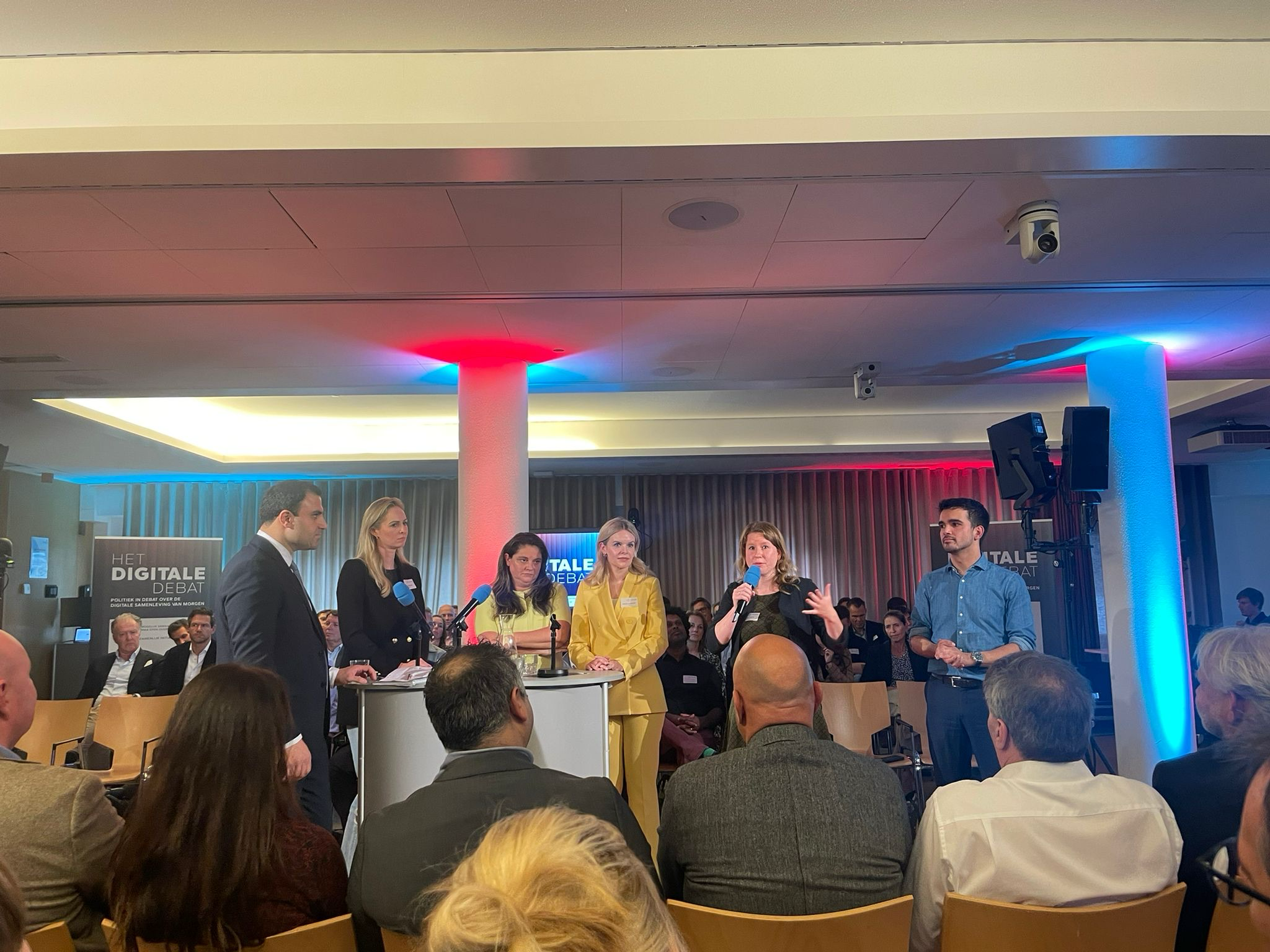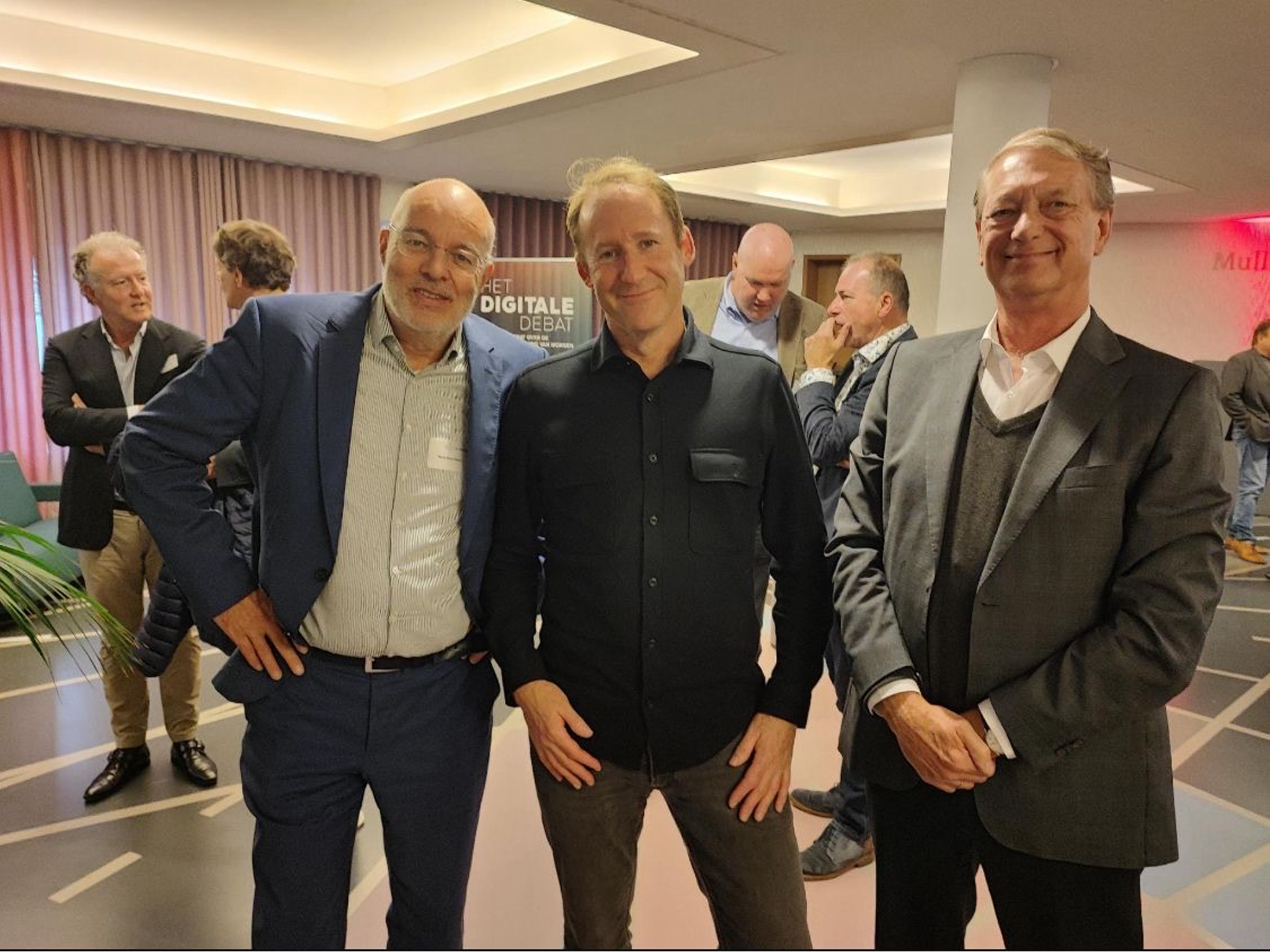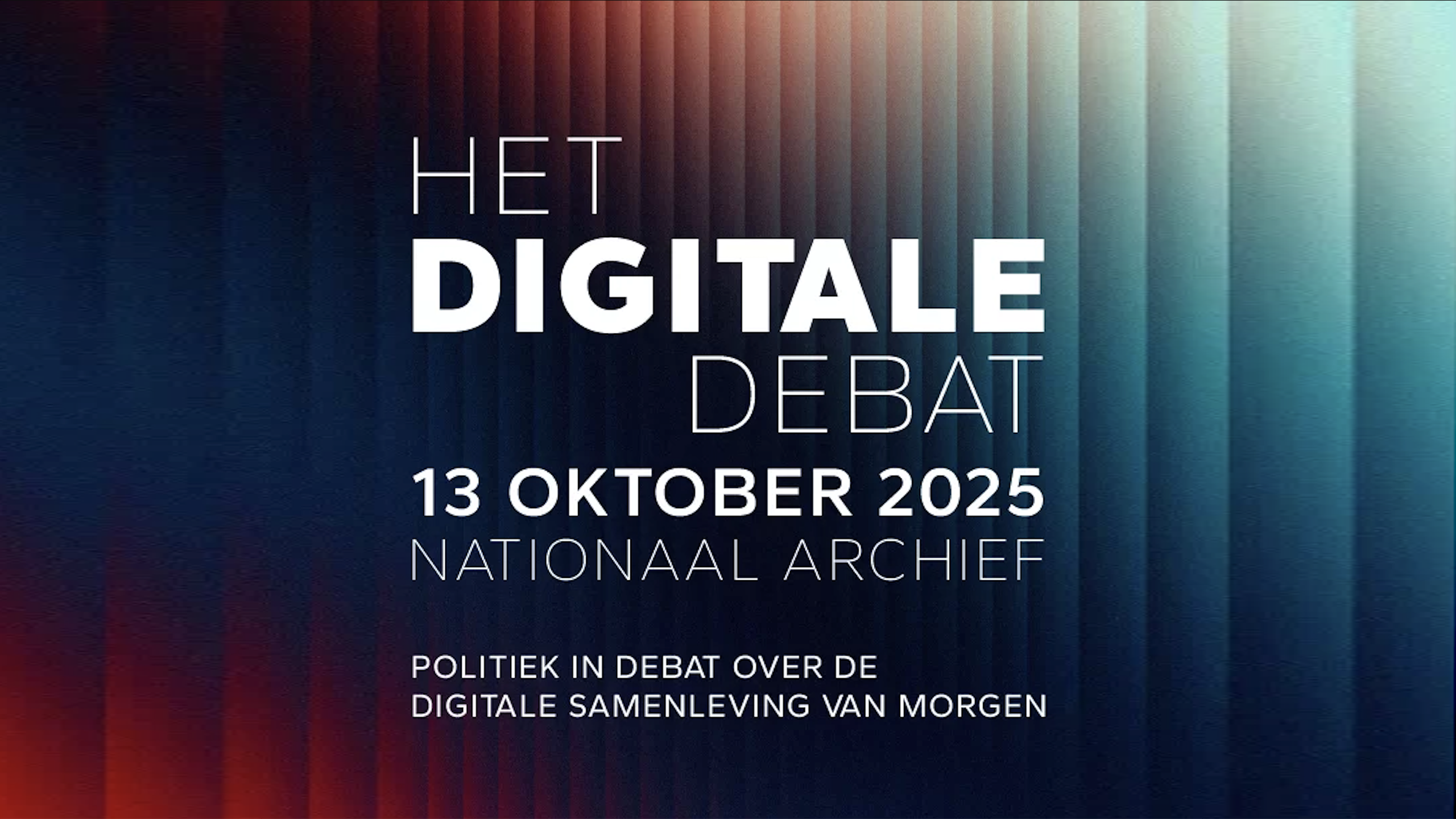On Monday, 13 October, the National Archives in The Hague hosted a remarkable event where digitalisation took centre stage in politics.
At last year’s NL@MWC, the topic of digital souvereignty was introduced during the NL talk sessions at the NL pavilion. Including talks by Paul Timmers and others related to the Draghi Report, pointing towards greater European digital sovereignty and autonomy, and introducing the Euro Stack.
During the Digitalisation Debate 2025, moderated by former D66 MP Kees Verhoeven, seven parliamentary candidates discussed the future of our digital society. Topics such as data, AI, energy, talent, and digital infrastructure showed that The Hague is finally beginning to grasp the urgency of the digital transition.
The debate was organised by a broad coalition of industry associations – including BTG, Cyberveilig Nederland, Dutch Cloud Community, Dutch Datacenter Association, DINL, Dutch Startup Association, Fiber Carrier Association, iPoort, NLconnect, and NLdigital – and supported by the Open Government Programme (PROO).
From Blind Spot to Political Priority
For years, digitalisation was a blind spot in Dutch politics. Yet its impact now reaches every aspect of our economy and society — and continues to grow. Encouragingly, all political parties now recognise its importance, though their approaches still differ.
The question of whether to establish a separate Ministry for Digital Affairs revealed contrasting views, but one message was clear: digitalisation is no longer a technical issue — it’s geopolitical.
Autonomy and Digital Sovereignty
The opening discussion went straight to the core question: How sovereign is the Netherlands when most of its data is stored in American clouds?
Barbara Kathmann (GroenLinks–PvdA) put it bluntly:
“Autonomy means setting your own rules. As long as we store everything in US clouds, we’re not in the driver’s seat.”
D66’s Hanneke van der Werf warned of dependency on Big Tech:
“If we stay on the Microsoft drip, one day the tap might close — and then even tax collection could stop.”
Volt’s Bjorn Beijnon stressed Europe’s role:
“Open source and open standards are key to regaining control.”
Meanwhile, VVD’s Queeny Rajkowski called for real investment:
“Sovereignty needs funding. That’s why the VVD wants a €42 billion European cloud investment fund.”
The Promise and Perils of AI
Artificial intelligence dominated the second part of the debate. Cynthia Pallandt (Party for the Animals) cautioned that digitalisation should serve people, nature, and democracy — not just profit.
Both Kathmann and Van der Werf agreed that the Netherlands must invest in its own AI capabilities, rather than relying on technology built on other value systems.
Infrastructure, Energy, and Talent: The Backbone
The shortage of energy and digital talent also loomed large.
SGP’s Ruben van Heteren warned:
“If we don’t act now, we won’t just fail to charge our cars — our European cloud will stop working.”
Several candidates underlined that robust digital infrastructure remains the foundation of progress. Kathmann reminded the audience:
“For the cost of a few kilometres of highway, you can finance a sea cable — the backbone of our digital economy.”
Urgency Beyond Political Party Lines
The debate concluded with a shared understanding: digitalisation transcends party politics.
As Kees Verhoeven summarised:
“Digitalisation touches everything and changes everything. It’s no longer a technical topic, it’s geopolitical. And finally, The Hague is treating it that way.”
The key takeaway was clear: political will is emerging, but commitment must be backed by concrete funding, ideally in partnership with the European Union. Without its own infrastructure, the Netherlands cannot achieve true digital sovereignty.
Message to voters: Think digital when you vote.
It was also great to see Kees Verhoeven again, he previously joined a similar NL Digital House discussion during the 2021 election period, organised by Dick van Schooneveld / Ecosystem Services.
Looking ahead to NL@MWC26, we will continue this conversation through the lens of the National Technology Strategy and the National Digitalisation Strategy.



